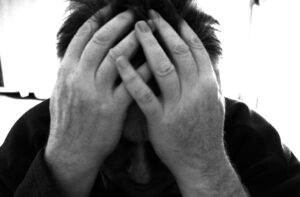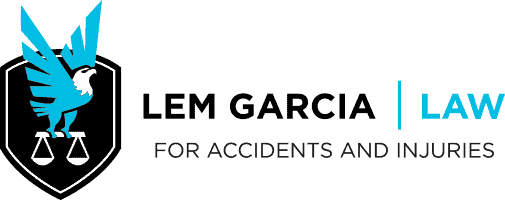What to expect physically after a car accident?
If you’ve ever been involved in a car accident, you know how scary the entire situation can be. Whether the accident involves a catastrophic collision or a small fender bender, the amount of force your vehicle experiences can cause you some type of pain. Sometimes the pain is instantaneous, while other times, it may take a while for the pain to set in. It’s important to monitor your injuries following an accident, not only for your physical well-being but to protect your legal rights.
What Types of Physical Symptoms Might You Experience?
For many people, physical symptoms might be easy to address, especially if excessive bleeding and immobility are involved. Outside of this, and because reactions to car accidents vary from person to person, it’s essential to understand what’s normal and what isn’t. Immediately after an accident, you might experience any of the following physical symptoms:
- Broken bones. When you experience broken bones from an accident, you most likely know immediately. Broken bones or fractures cause extreme pain at the injury site, and you might also find bruising and swelling at the location of the broken bone.
- Soft tissue injuries. These types of injuries are the most common that people experience after an accident. Since your bones are surrounded by muscles, tendons, and ligaments, the force of the accident might place additional stress on the soft tissues. You might experience tears or sprains to these ligaments and muscles.
- Spinal cord injuries. If you’re involved in a serious accident, you might suffer from a spinal cord injury. This type of injury results from a penetrating injury or trauma to the back or neck. In some cases, spinal cord injuries can result in permanent paralysis.
- Traumatic brain injuries. Although this term sounds scary, it simply describes a brain injury that was caused by outside trauma, such as a blow to the head.
What Are Some Delayed Types of Pain?

When your body experiences a car accident, it typically generates adrenaline and endorphins. This rush of adrenaline might make you feel like you have an increase in energy and possibly a lack of pain. Just because you feel fine right after the accident doesn’t mean that you are fine since visible wounds aren’t the only type of injury you can sustain. It’s important to pay attention to the types of pain you might experience after the adrenaline wears off. If you suffer from any of the following, get immediate medical attention:
- Abdominal pain. Internal injuries can be extremely serious and sometimes fatal if left untreated. Internal bleeding can also cause deep bruising, headaches, and dizziness.
- Back pain. Any type of back pain, but specifically pain in the lower back, could mean a whiplash-related injury. It might also be related to a herniated disc or muscle damage. If you also experience numbness and tingling with back pain, you might have a pinched nerve.
- Changes in behavior. If you strike your head or your body experiences a sudden jolt, your brain might strike the inside of your head with such force that you suffer a concussion. A concussion can cause personality changes as well as memory changes or depression.
- Headache. Pay attention to how severe the pain is and its location. Although it could be stress-related, a headache might signal a concussion, whiplash, brain injury, or even a blood clot.
- Numbness or tingling. In addition to weakness in your limbs, these sensations oftentimes indicate a herniated disc that pinches against the nerves in the spine. This pinching causes numbness or tingling.
- Pain in the neck or shoulders. This type of injury might signal whiplash. Neck and shoulder pain might also signal a spinal injury such as a herniated disc.
How Long After an Accident Might Injuries Show Up?
Depending on the type of injury you sustained as well as the circumstances surrounding the accident, you might have a delay in the onset of your injuries. You should expect to feel sore and achy after an accident, but you should pay attention to significant physical injuries that require medical care and treatment. Internal bleeding and bruising might take several days to be noticed, while concussion symptoms might not show up for hours or days after the accident.
What Should You Do if You Suffer From Pain?
Following a car accident, it’s a good idea to visit a doctor if you experience any type of pain or discomfort, no matter what type of injury you sustain. Even if you feel and look fine, you should get checked out to determine if you’ve suffered any kind of serious injuries or delayed symptoms due to the accident. Your doctor can also advise you regarding potential injuries and symptoms you might experience.
Make sure you document that you sought medical treatment within a reasonable time after the accident. Waiting too long might cause red flags from the insurance adjuster that your injuries weren’t that serious.
Why Should You Wait Before You Sign a Release of Liability?
Typically the injured party must sign a release of liability after settling a car injury claim. Once signed, the lawsuit ends, if applicable, all future claims relating to the accident. However, if you sign this form too early before you can ascertain all the injuries you might have sustained, you might lose out on any type of compensation you might qualify for.
As long as you haven’t settled your claim or signed a liability release, you can still qualify for compensation relating to your delayed injuries. In addition to asking the medical professional for a complete evaluation, make sure to obtain an accurate estimate about any future medical expenses you might experience.
If you’re involved in a car accident in Southern California, reach out to Lem Garcia Law for a free, no-obligation consultation. Our lawyers are dedicated to helping clients recover after they’ve experienced a car accident. No one deserves to suffer, and we fight to hold negligent drivers accountable for their actions. We know how to handle these types of accidents and will let you know if you have a case that we can help you pursue.


